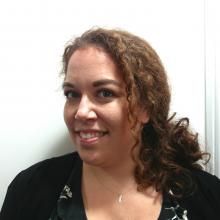
Shared decision making is about communication, not coercion
Hannah Chalmers
- Person-centred care
- Communication and administration
I recently read an interesting article written by an oncologist who said her patient had decided to use essential oils rather than chemotherapy to treat their cancer. The oncologist said that she wanted to tell her patient that he was wrong but believes that in an era of fake news it is not possible to “see off quackery through good communication”.
Something about this article didn’t sit right with me. It seems the oncologist (and the nurse who set up the consultation with the sole purpose of trying to convince the patient to change their mind) didn’t get to the root of the issue. This would have been the perfect situation to have a conversation following shared decision making principles – where the risks and benefits of different treatment and care options are fully explored and a decision is reached together – but there’s no evidence this happened.
Understanding an individual
Let’s put the effectiveness of essential oils to one side: a patient has been given a devastating diagnosis and is possibly, for the first time, staring his own mortality in the face. There is a good chance he is scared and confused. He may have tried to educate himself on his diagnosis and options via conventional routes but, like all of us, he has also probably Googled his condition, spoken to friends and family and done some pretty intense soul searching about what he wants to do next.
Why didn’t the oncologist ask about that? Why didn’t she explore what his thought process was that led him to choose essential oils? Why didn’t she ask about what matters most to him? What he wants to achieve, not just with his health but with his life? Where he sees himself in the future?
I do have great sympathy for this oncologist. I am sure she became a doctor because she was interested in helping people get better. And it must be frustrating to see a patient make what she sees as an uninformed or uneducated choice. But I see no evidence in this article that she explored why this patient doesn’t trust chemotherapy.
Good communication
Shared decision making is not a magic wand to be used by doctors to get patients to do what they want. Sometimes a comprehensive shared decision making conversation will still result in a patient choosing a non-NHS recommended course of treatment, but that doesn’t negate the need for the conversation.
We shouldn’t be giving up on shared decision making because of fake news and social media misinformation; if anything we need it more now than ever! Good communication techniques are only a “fool’s errand” if they are being used to coerce a specific decision. Instead we should be using those techniques to ensure that patients like this, even if not convinced about chemotherapy, feel that their concerns and priorities are listened to and respected.